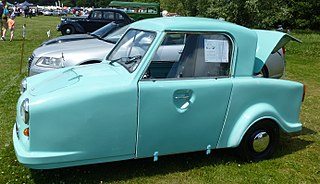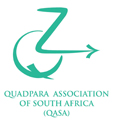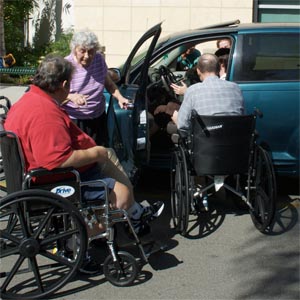
A tricycle, sometimes abbreviated to trike, is a human-powered three-wheeled vehicle.

AA Limited, trading as The AA, is a British motoring association.

The NRMA is an Australian organisation offering roadside assistance, advocacy for motorists and road-users, motoring advice, car servicing, International Driving Permits, travel, and other services in all of Australia except Victoria. It is a member-owned mutual company limited by guarantee. It was formed in 1920.
Cycling UK is a trading name of the Cyclists' Touring Club (CTC), which is a charitable membership organisation supporting cyclists and promoting bicycle use. Cycling UK is registered at Companies House as "Cyclists’ Touring Club", and is covered by company law. It works at a national and local level to lobby for cyclists' needs and wants, provides services to members, and organises local groups for local activism and those interested in recreational cycling. The original Cyclists' Touring Club began in the nineteenth century with a focus on amateur road cycling but these days has a much broader sphere of interest encompassing everyday transport, commuting and many forms of recreational cycling. Prior to April 2016, the organisation operated under the brand "CTC, the national cycling charity". As of February 2020, the organisation's president is the newsreader Jon Snow.

IAM RoadSmart, formerly called the Institute of Advanced Motorists (IAM), is a charity based in the United Kingdom, whose objective is to improve car driving standards, motorcycle riding standards, and enhance road safety by using the British police's system of car and motorcycle control. The System was devised in 1937 by racing driver Mark Everard Pepys, 6th Earl of Cottenham, to reduce accidents in police pursuits.

Invisible disabilities, also known as hidden disabilities or non-visible disabilities (NVDs), are disabilities that are not immediately apparent. They are typically chronic illnesses and conditions that significantly impair normal activities of daily living.

A mobility scooter is an electric personal transporter used as mobility aid for people with physical impairment, mostly auxiliary to a powered wheelchair but configured like a motorscooter. When motorized they function as micromobility devices and are commonly referred to as a powered vehicle/scooter, or electric scooter. Non-motorized mobility scooters are less common, but are intended for the estimated 60% of wheelchair users who have at least some use of their legs. Whilst leg issues are commonly assumed to be the reason for using scooters, the vehicles are used by those with a wide range of conditions from spinal injuries to neurological disorders.
The RAC Foundation is a registered charity.

Rosa May Billinghurst was a British suffragette and women's rights activist. She was known popularly as the "cripple suffragette" as she campaigned in a tricycle.

The Invacar is a small single-seater microcar vehicle designed for use by disabled drivers, and distributed for free in the UK.

A handcycle is a type of human-powered land vehicle powered by the arms rather than the legs, as on a bicycle. Most handcycles are tricycle in form, with two coasting rear wheels and one steerable powered front wheel. Despite usually having three wheels, they are also known as handbikes.

A disabled parking permit, also known as a disabled badge, disabled placard, handicapped permit, handicapped placard, handicapped tag, and "Blue Badge" in the European Union, is a permit that is displayed upon parking a vehicle. It gives the operator of a vehicle permission to special privileges regarding the parking of that vehicle. These privileges include parking in a space reserved for persons with disabilities, or, in some situations, permission to park in a time-limited space for a longer time, or to park at a meter without payment.
Motability is a scheme run by a private company called Motability Operations Ltd, intended to enable disabled people, their families and their carers to lease a new car, scooter or powered wheelchair, using their disability benefit. It is overseen by the charity called the Motability Foundation in the United Kingdom. According to its response to a UK Government inquiry in 2019 into enhancing mobility for disabled citizens, Motability Ltd had over 620,000 customers. In 2022 it made a pre-tax profit of £1.1bn. According to Citizen's Advice, access to the scheme is dependent on eligibility relative to mobility conditions in government schemes, including: Disability Living Allowance (DLA), Personal Independence Payment (PIP), Armed Forces Independence Payment (AFIP) or War Pensioners’ Mobility Supplement. Motability's 2019/2020 audit document reported 94% of persons using Motability's scheme to buy a car either have a physical disability or long term health condition. In 2018, the National Audit Office praised the customer satisfaction rates for the service, but criticised the profit and reserve levels the charity held. They also noted criticised its governance and "executive remuneration." A response to a 2019 parliamentary committee to release £343 million of its £2.5bn reserve was greeted as a "first step" to making best use of its "vast sums."
Disability Living Allowance (DLA) is a social security benefit in the United Kingdom paid to eligible claimants who have personal care and/or mobility needs as a result of a mental or physical disability. It is tax-free, non-means-tested and non-contributory. The benefit was established by the Social Security Contributions and Benefits Act 1992, integrating the former benefits Mobility Allowance and Attendance Allowance and introducing two additional lower rates of benefit. Prior to 2013 it could be claimed by UK residents aged under sixty five years. However, the benefit was phased-out for the majority of claimants between 2013 and 2015 and replaced by a new Personal Independence Payment. DLA can still be claimed by children under sixteen and can still be received by existing claimants who were aged sixty five or over on 8 April 2013.

The QuadPara Association of South Africa (QASA) was established in 1978 as a non-profit organisation which strives to prevent spinal cord injury through high-profile information campaigns, as well as to protect and promote the interests of people with mobility impairments through lobbying and advocacy.
Disability Rights UK (DR UK) is a UK pan-disability charity which was set up with the aim of representing the needs and expectations of disabled people in the UK. Disability Rights UK was formed as a result of several disability charities merging in 2012.
Personal Independence Payment is a welfare benefit in the United Kingdom that is intended to help working age adults with the extra costs of living with a health condition or a disability. It is available in England, Wales and Northern Ireland but not in Scotland where Adult Disabled Payment (ADP) is claimed instead.

An adapted automobile is an automobile adapted for ease of use by people with disabilities. Automobiles, whether cars or vans, can be adapted for a range of physical disabilities.

Invalid carriages were usually single seater road vehicles, buggies, or self-propelled vehicles for disabled people. They pre-dated modern electric mobility scooters and, from the 1920s, were generally powered by small gasoline/petrol engines, although some were battery powered. They were usually designed without foot-operated controls.
Rachel Mary Rosalind Hurst CBE is a British activist and former director of Disability Awareness in Action (DAA), an international network working on disability and human rights.













